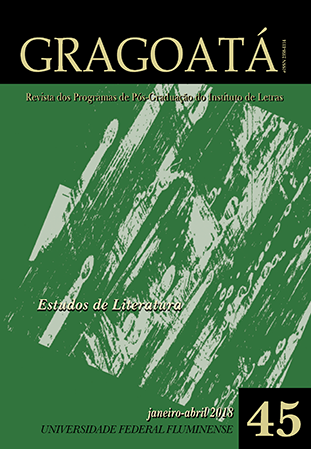Mateship and egalitarianism in Henry Lawson’s short stories
DOI:
https://doi.org/10.22409/gragoata.v23i45.33569Palabras clave:
Mateship. Egalitarianism. Henry Lawson. Australian short stories.Resumen
Mateship is an important element of the so-called “Australian Tradition” in literature. It consists of a particular bond between men who travel the rural areas known as “the bush” or “the outback”. This article examines some of Henry Lawson’s mateship stories, with a focus on the different connotations that the term can assume for the author, especially regarding the theme of egalitarianism. It considers how the Bulletin Magazine, which “discovered” Lawson and published many of his stories, had a role in fostering a special model of Australian democracy and a peculiar style for Australian literature. It also reflects on how the dissemination of Lawson’s stories through periodicals in the last decades of the 19th century helped create a feeling of what Benedict Anderson calls “nation-ness”.
---
Original in English.
---
Descargas
##submission.downloads##
Publicado
Cómo citar
Número
Sección
Licencia
AUTORIZAÇÃO
Autores que publicam em Gragoatá concordam com os seguintes termos:
Os autores mantêm os direitos e cedem à revista o direito à primeira publicação, simultaneamente submetido a uma licença Creative Commons Atribuição 4.0 Internacional (CC BY 4.0), que permite o compartilhamento por terceiros com a devida menção ao autor e à primeira publicação pela Gragoatá.
Os autores podem entrar em acordos contratuais adicionais e separados para a distribuição não exclusiva da versão publicada da obra (por exemplo, postá-la em um repositório institucional ou publicá-la em um livro), com o reconhecimento de sua publicação inicial na Gragoatá.
A Gragoatá utiliza uma Licença Creative Commons - Atribuição CC BY 4.0 Internacional.











